Movie Review – Caligula: The Ultimate Cut
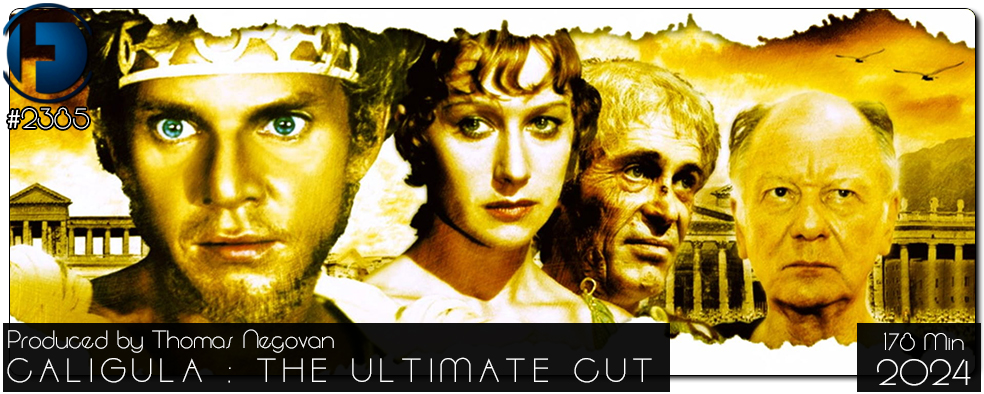
Principal Cast : Malcolm McDowell, Helen Mirren, Teresa Ann Savoy, Guido Mannari, John Gielgud, Peter O’Toole, Giancarlo Badessi, Bruno Brive, Adriana Asti, Leopoldo Trieste, Paolo Bonacelli, John Steiner, Mirella D’Angelo, Richard Parets, Paula Mitchell, Osiride Pevarello, Anneka Di Lorenzo, Lori Wagner.
Synopsis: A dramatization of the ascent to Caesar and subsequent reign of Caligula, one of the most notorious leaders of ancient Rome. We see his ambition, his scheming, his perversion and decadence, his brutality and his lunacy.
********
If there was a dictionary definition of controversial representing cinema, a poster for 1979’s arthouse porn/drama flick Caligula would be among the most prominent. Originally an attempt by Penthouse to tread the mainstream, written by Gore Vidal and directed by Tinto Brass, the film’s original release saw significant sequences of hardcore pornographic footage intermixed with less prurient material, the outcry over which would see stars Helen Mirren, Malcolm McDowell and Gore Vidal disavow the finished product – producer Bob Guccione reportedly snuck back to set after principal photography had concluded with a stable of adult film actors and a skeleton crew to shoot additional hardcore material, as if to really push the needle with his artistic endeavour to capture the depravity and excess of ancient Roman life during the first Century AD.
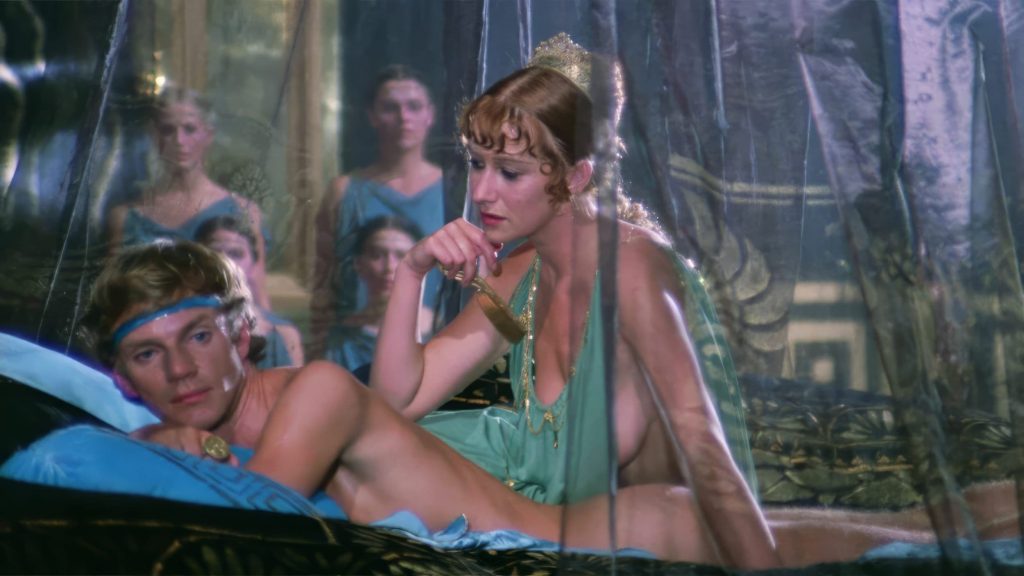
The end result was a film of mixed and indifferent value. On the one hand, in its original and various release versions through the years the film is an unwatchable mess, held together only through the wild-eyed central performance of Malcolm McDowell, an actor trying to find his place following the release of the equally controversial Stanley Kubrick film A Clockwork Orange several years prior. On the other hand, the film is a violent, depraved, inordinate curiosity, better known for its excessive nudity and sexual content, its depictions of violence, and its lavish sets and costumes; the production’s Italian-based studio work and copious full frontal nudity are indeed salacious and extravagant, so for that I guess it has some titillating interest.
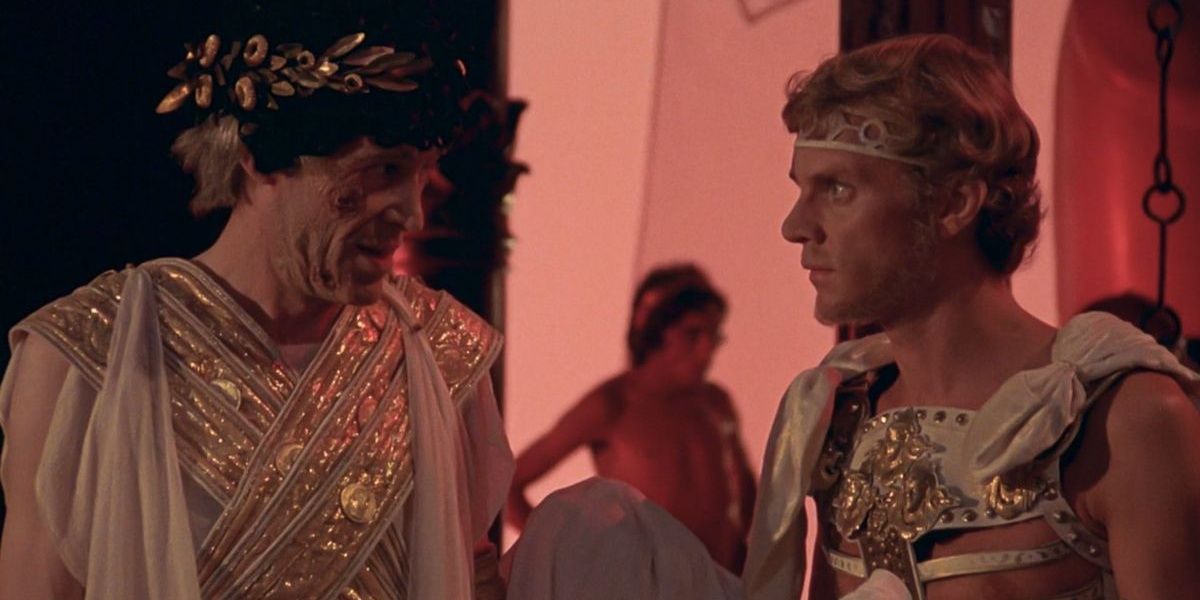
Over the years, several revisions to Tinto Brass’ film have been attempted, although perhaps the most complete – this three-hour Ultimate Cut – now sits as a contemporary rethinking of the film’s distinctly panoramic narrative. Chicago-born producer Thomas Negovan has effectively renewed interest in Caligula thanks to an enormous restorative endeavour, utilizing nearly a hundred hours of previously unseen archival footage to edit a version closer to screenwriter Gore Vidal’s original vision, making this version a far more elaborate (and considerably less pornographic) affair than we’ve seen yet. Don’t get me wrong, there’s still a lot of nudity, sex and heaving heavenly bosoms contained within this expensive arthouse experiment, so fret not you perverts. Rather, Negovan and his team have restored the underlying madness of Roman Caesar Caligula to its whole, horrifying complexity. The Ultimate Cut does not use any footage from the original release, removes the hardcore sex footage, and boasts a stellar quality print that looks like it was filmed yesterday; it’s like seeing a completely different movie, in some respects.
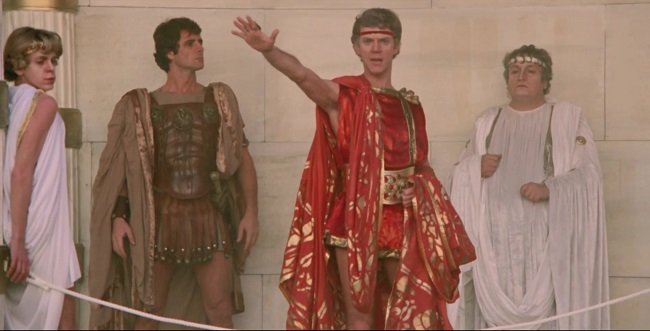
But – and this is an enormous but – the film improves only so marginally. The tangle of competing themes and ideas from Vidal, Brass and Guccione, who each had differing ideas on how to present Caligula the man to modern audiences, remains an inordinate mess, although this film fleshes out the Emperor’s relationship with Helen Mirren’s Caesonia a lot more (Mirren was only in the original version for about fifteen minutes, whereas here she appears quite early and remains throughout), while the dulcet visuals of Teresa Ann Savoy, as Caligula’s sister Drusilla, is a welcome improvement. Some of the film’s memorable set-pieces remain in their entirey, notably a rape scene involving Caligula, one of his army generals, and the general’s wife, as well as a legendary orgy sequence midway through the final act, not to mention a sensuous sex scene involving Drusilla, Caligula and Caesonia after a particularly bizarre rant from the Roman leader. Caligula’s legendary insanity and indifference to the suffering of his people is depicted brutally and repeatedly, so much so that it does become a little wearying, although McDowell performance of the character is in itself remarkably hypnotic. Watching a complete psychopath control an entire civilisation is arguably more horrifying than watching his screw his sister, although there’s nothing redemptive about the film’s approach to the man’s real-life historical claims.
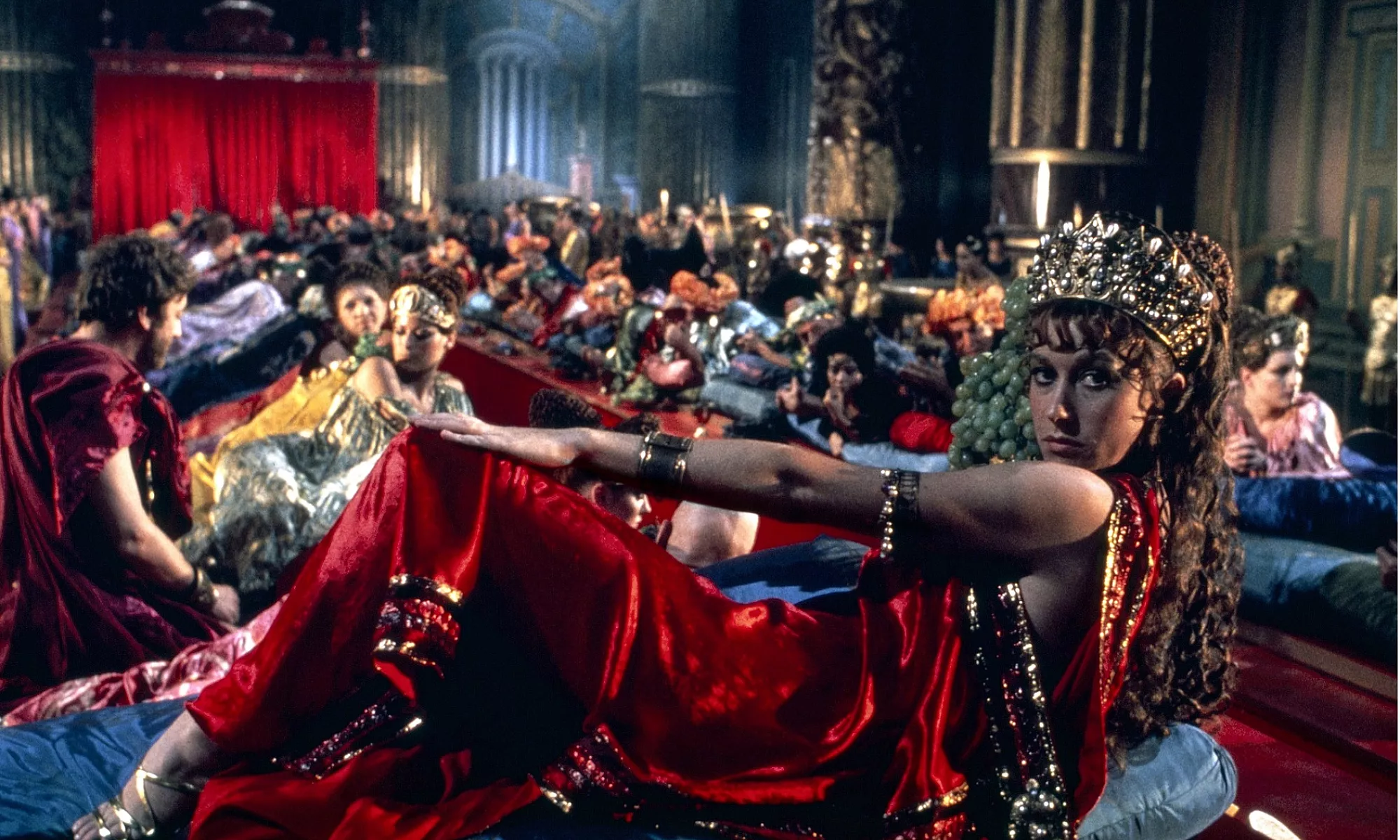
Otherwise, this three hour biopic is, frankly, only good for a nice perv. Mirren, Savoy, innumerable Italian extras on set, all cavort nude at some point, however we’re spared the ignominy of watching Sir John Gielgud or Peter O’Toole getting jiggy with it so I guess we should be thankful for small mercies. The character beats are still the weakest aspects of the film, with Brass’ original filming style remaining quite distant, nearly voyeuristic without being intimate, resulting in a film that feels like it’s keeping its distance a little too much. The cast do their best – and the restorative team utilising alternative audio and overdubbing of existing performances to capture as close to Gore Vidal’s vision as they can – but the inherent misfire of the idea of the film is unsalvageable. I admit, this is a far better viewing experience (especially on a big screen that can display the luxurious sets and tremendous production design in high definition) than the original release or its subsequent digital variants, and the replacement musical score is a true highlight, even when the story and characters feel thrust into the background between boobs and boners.
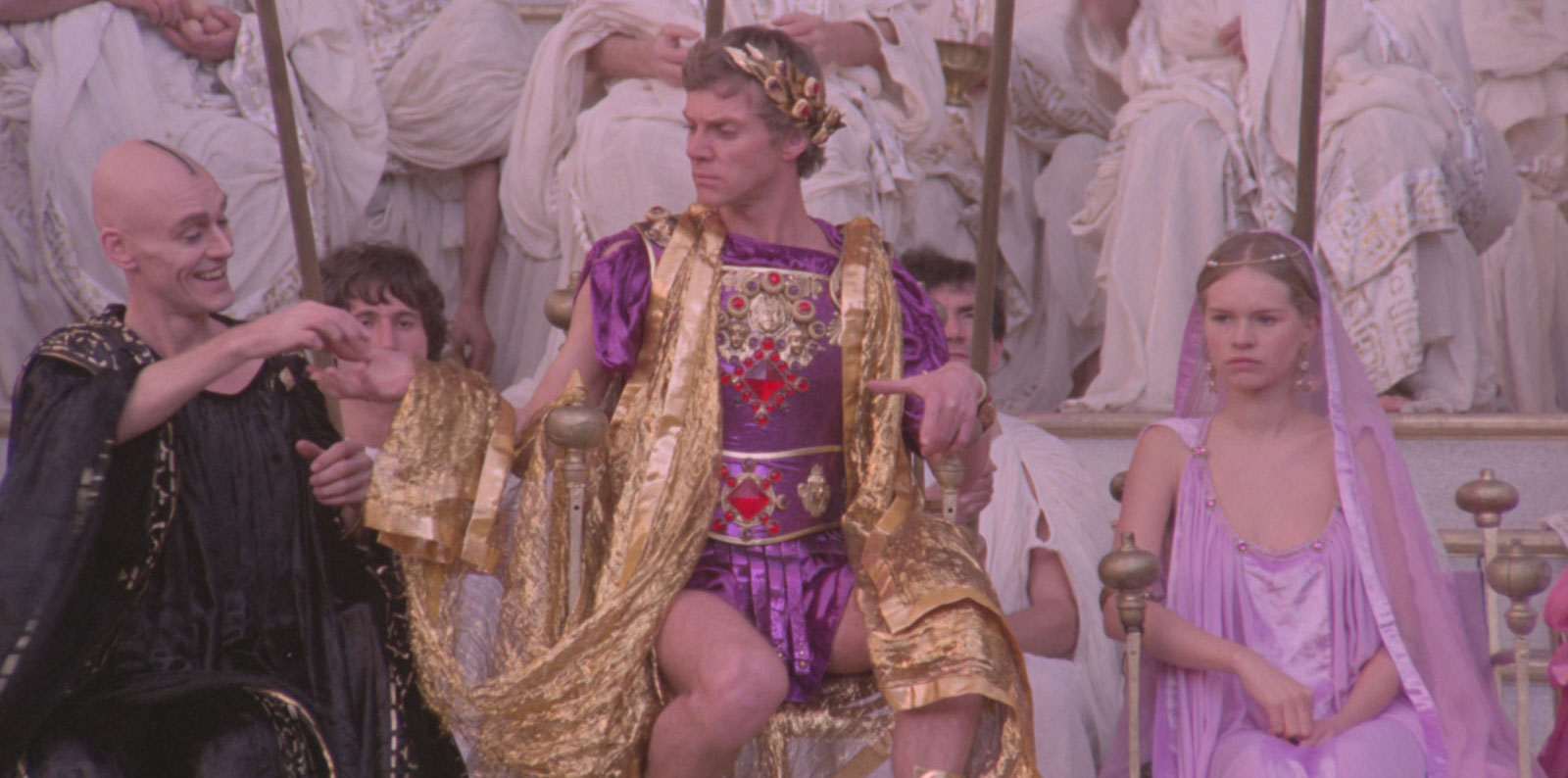
Caligula’s Ultimate Cut is easily the best version of this monstrous opus we’re going to get, and I would argue it’s easily the most faithful if Thomas Negovan’s remarks around his work here are anything to go by. The bar for the film’s quality was already very low, in my opinion, so to see any improvement over narrative structure or character arcs that connect emotionally is to be able to finally recommend this film at all. Sadly, the salacious nature of Caligula remains its chief selling point, but I applaud the folks behind this attempt to repurpose Guccione’s folly and craft something worthwhile from the remnants. Having the ability to curate an entirely new cut of the film from footage nobody has seen is quite an asset, however small the incremental improvements. Caligula: The Ultimate Cut is beautiful to look at, terrific to listen to (aside from obvious ADR issues that no amount of modern technology can overcome), and represents the best the film will ever be. For what it’s worth, I’d recommend it based on the restoration and editorial choices, but little else.
